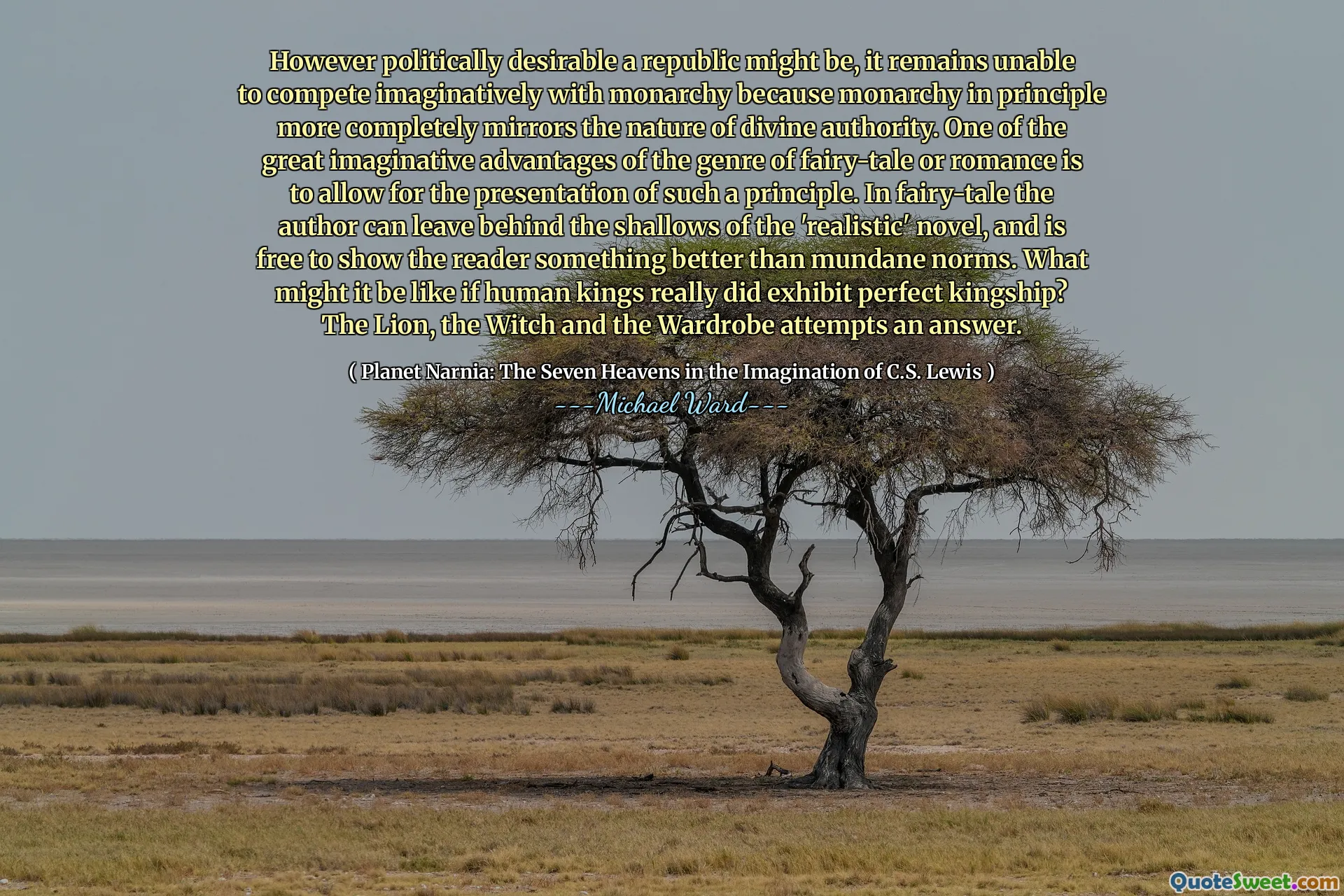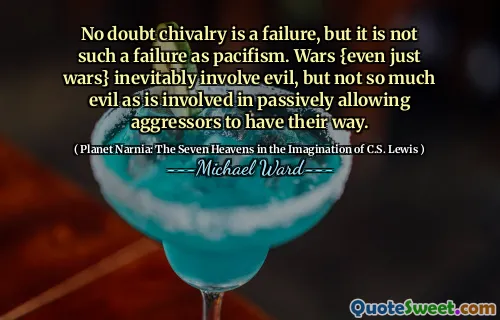
However politically desirable a republic might be, it remains unable to compete imaginatively with monarchy because monarchy in principle more completely mirrors the nature of divine authority. One of the great imaginative advantages of the genre of fairy-tale or romance is to allow for the presentation of such a principle. In fairy-tale the author can leave behind the shallows of the 'realistic' novel, and is free to show the reader something better than mundane norms. What might it be like if human kings really did exhibit perfect kingship? The Lion, the Witch and the Wardrobe attempts an answer.
The argument suggests that while a republic might be politically appealing, it cannot match the imaginative depth of a monarchy, as monarchy inherently reflects divine authority more profoundly. In literature, especially fairy tales and romances, authors can explore these themes without the constraints of realism, allowing for a portrayal of ideal kingship. This narrative freedom lets readers envision a leadership that transcends the ordinary.
A compelling example of this exploration is found in "The Lion, the Witch and the Wardrobe," where C.S. Lewis presents an imaginative interpretation of monarchy. The story not only questions what it means to have a perfect ruler but also invites readers to consider how such a kingship could impact their understanding of authority and governance.







